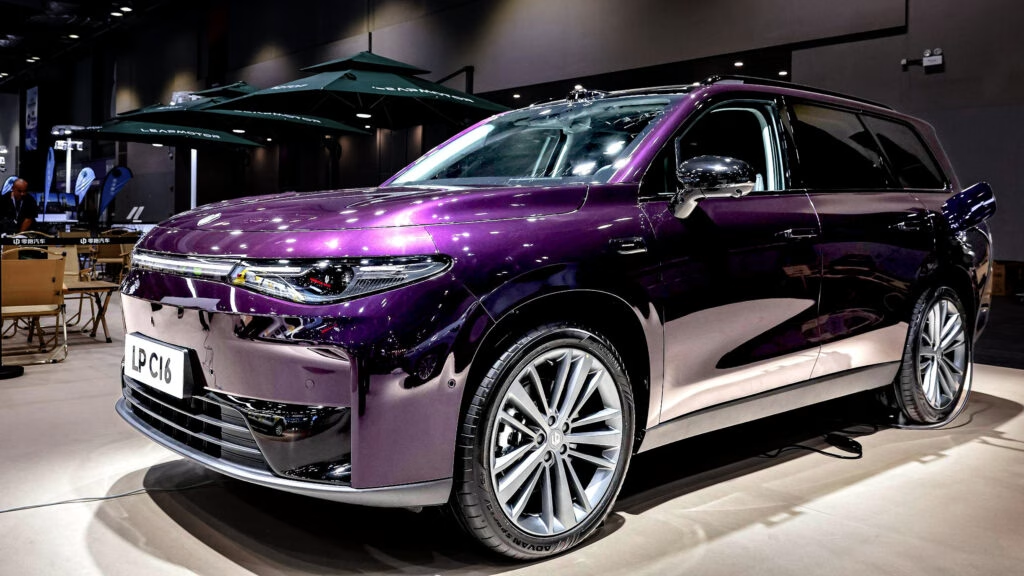Imagine this: you walk into a dealership, and instead of shelling out $40,000 or more for a shiny new midsize SUV, you find one priced at just $7,000. Sounds too good to be true, right? Well, according to Zhu Jiangming, the CEO of Leapmotor, this could be a reality in the not-so-distant future—at least in China.
### What’s Behind the $7,000 SUV Claim?
Zhu believes that advancements in technology, particularly the integration of chips into vehicle manufacturing, could drastically reduce production costs. He suggests that it’s entirely reasonable to envision family-sized SUVs selling for around 50,000 yuan (about $7,000). This kind of pricing would turn the current automotive market on its head, especially when you consider that a similar amount today might only get you a 15-year-old Toyota Corolla with a hefty mileage.
### The Price War in China’s Auto Industry
The backdrop to Zhu’s bold prediction is a fierce price war currently shaking up the Chinese automotive market. With numerous brands vying for survival, the competition is pushing prices down to levels that many in the West would find unfathomable. This situation has led to speculation that several companies may not survive the storm. Zhu’s comments come at a time when companies like BYD have already begun slashing prices, making electric vehicles more accessible than ever.
### Learning from Other Industries
Zhu isn’t just throwing out wild predictions without some basis. He points to the rapid decline in prices for consumer electronics as a model for what could happen in the automotive sector. For instance, large-screen TVs that once cost thousands are now available for under $1,000, and air conditioning units can be found for around $150. This trend suggests that as technology advances and production methods improve, prices for complex products can drop significantly.
### Leapmotor’s Current Standing
While Leapmotor’s current offerings, like the C16 SUV priced between $24,000 and $27,000, are already competitive, they still have a way to go before reaching Zhu’s ambitious target. However, even at these prices, they represent a significant bargain compared to many Western models.
### The Competitive Landscape
Zhu’s assertion is likely to raise eyebrows among his competitors. For instance, Wei Jianjun, CEO of Great Wall Motor, has expressed concerns about the implications of this price war, comparing it to the collapse of the Evergrande property group. His caution reflects a broader anxiety within the industry about the sustainability of such aggressive pricing strategies.
### The Future of the Automotive Market
As the landscape evolves, it’s clear that traditional automakers in the West are facing an uphill battle. The shift towards electrification has leveled the playing field, allowing Chinese manufacturers to capitalize on their technological advancements and cost efficiencies. Brands that once dominated the market are now scrambling to adapt, and some may not make it through this transition.
### What This Means for Consumers
For consumers, the potential for a $7,000 SUV could be a game-changer. Imagine being able to afford a brand-new vehicle that’s spacious enough for the whole family, without breaking the bank. This shift could redefine what it means to own a car, making new vehicles accessible to a broader audience.
### A New Era for Automakers
The automotive industry is at a crossroads, and the implications of Zhu Jiangming’s predictions could be profound. As competition heats up and technology continues to advance, we may very well see a future where owning a new SUV is as affordable as buying a used compact car today.
The big takeaway? The automotive landscape isn’t just changing; it’s transforming in ways we never thought possible. Keep an eye on these developments, because the next few years could redefine car ownership as we know it. Start thinking about what you’d want in a vehicle, because soon, the options might be more accessible than ever.

